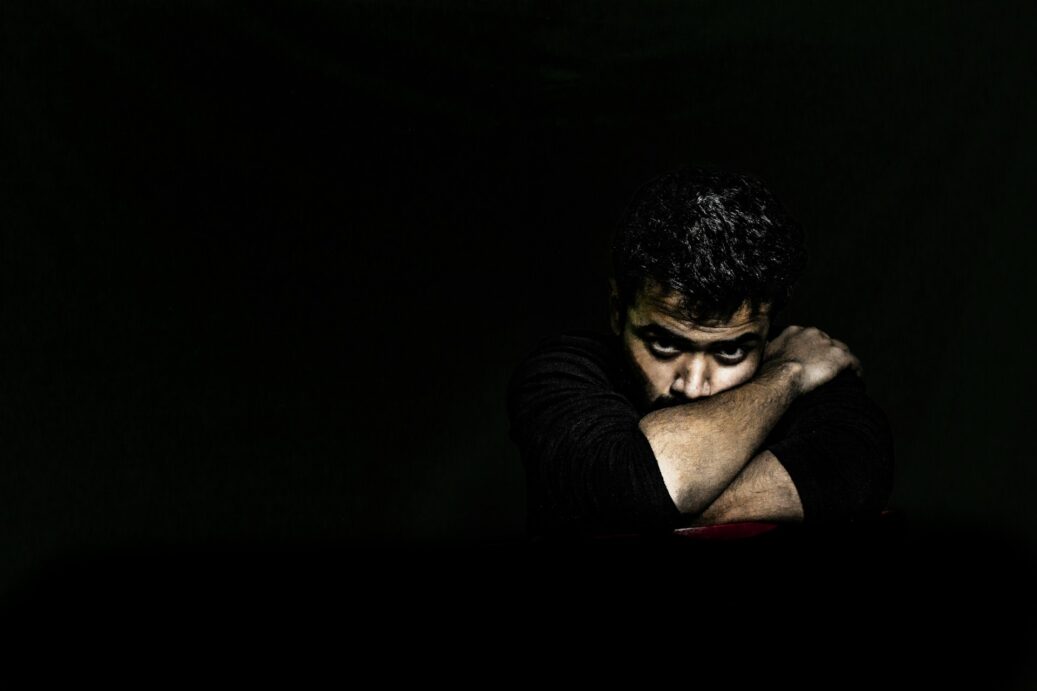It’s just after midnight on a Monday night. You’re driving home on the highway after a late-night work event, cruising in the slow lane.
Suddenly, two vehicles zoom past you in the fast lane.
Unbelievable.
All of a sudden, you look ahead and see one of the vehicles come to a complete stop in the middle of the highway! One of the drivers gets out of his car and starts to throw things at the other vehicle! You carefully remain in the slow lane and maneuver past the chaos, making it home safely, but you wonder what happened to those two drivers.
So, how did the story end?
Eventually, because the drivers neglected to turn their lights on in the dark, another vehicle slammed into the back of one of the stopped cars, spun out, crossed the other lane, and hit several different vehicles. Multiple automobiles were tangled up, with some ending up in the ditch. Five people were injured, and two were taken to the hospital with significant injuries.
Classic.
As you may have guessed, this was an all-too-familiar true story that happened on May 13, 2024, in Toronto, Canada.
Now, although most men–hopefully–haven’t ever been involved in a road rage-induced accident like this, the reality we have to face is that we’ve probably allowed worse thoughts to cross our minds on the roads at some point, even as Christians.
We all deal with anger in our lives. On the roads, at home, at work, and sometimes even at church.
Anger is a natural, God-given emotion. Yet, when men don’t know how to respond to it in a healthy way, we risk letting it wreak havoc on our lives (and our cars).
The Truth About Anger
Here’s the thing–and I know you’ve heard this before–but even Jesus sometimes got angry. We see Him get angry when the Pharisees prioritized their religious rituals over someone’s need for healing (Mark 3:4) and when merchants turned the Temple into a marketplace (John 2:15).
Jesus’ life teaches us that it’s okay to be angry.
In fact, when we try to repress our anger, we end up with a host of other problems we have to deal with, like depression or passive-aggressiveness.
Jesus’ life teaches us that it’s okay to be angry.
Yet the biblical reality is that “the anger of man does not produce the righteousness of God” (James 1:20). Uncontrolled, fleshly anger can be dangerous to ourselves and those we love. We can’t bottle up our anger but also can’t express it recklessly.
So, what are we supposed to do with this challenging emotion?
How Should Men Respond to Anger?
When we turn to the Word, it’s essential to observe that a key word that seems to be mentioned frequently when anger is discussed in the Scriptures is “slow.”
The phrase “slow to anger” appears in Proverbs 14:29, 16:32, 15:18, and 19:11, Ecclesiastes 7:9, and James 1:19. In Psalm 103:8, the Lord Himself is described as “slow to anger.”
I mean, Jesus took time to make a whip of cords before responding to His righteous anger by clearing the temple (John 2:15). I don’t know about you, but that would have taken me a few minutes, at least.
The frequency with which the term slow is mentioned alongside anger in the Word should tell us that slowness should mark our response to anger as disciples of Christ.
Think about it–when are you most angry on the roads? Is it when you’re speeding and rushing somewhere? Or, when do you get most angry at those around you? Is it when you feel pressured to respond immediately?
I propose this to men: when you’re angry, your first response should be to slow down.
What Slowing Down Accomplishes
As psychotherapists, one of the most important skills we help our clients develop is emotional regulation. This term means leading our emotions rather than being led by our emotions. I’ve observed in my work that regulating emotions is particularly difficult when we’re moving fast. A big part of what makes time in therapy so powerful is that it allows us to slow down enough to label and process our emotions properly.
When clients do get to a place where they’re willing to process their emotions, I like to draw on a set of questions from a treatment modality called Dialectical Behaviour Therapy (DBT). According to Marsha Linehan, creator of DBT, going through a process of the following questions can help us better understand an intense emotion like anger:
Does this anger fit the facts? (e.g., do I have an accurate and reasonable view of what is really happening here?)
- (if Yes) – Would acting on this anger be wise?
-
-
-
- (if Yes)—Mindfully act on the action urge associated with the anger (e.g., defending someone).
-
-
-
-
-
- (if No) – Do not act on the emotion; instead, problem-solve through a way that the emotion can be expressed in a wise way (e.g., through prayer, worship, trust in the Lord, sharing with someone you trust, etc.)
- Consider “opposite action,” which allows us to change the emotion by acting opposite to its action urge. For example, Jesus teaches us that when a solider demands we carry his gear for a mile, instead of retaliating against the soldier, we engage in opposite action by carrying the load two miles instead of one (Matthew 5:40). This allows us to turn our anger into love for the other person.
- (if No) – Do not act on the emotion; instead, problem-solve through a way that the emotion can be expressed in a wise way (e.g., through prayer, worship, trust in the Lord, sharing with someone you trust, etc.)
-
-
- (if No) – Consider the actual facts that you can measure and explore why your anger could be disproportionate to the reality of the circumstance, with questions like:
- What emotion could your anger be masking? Is it sadness? Is it fear? Note here that fear and anger can often be connected.
- What past experience or emotional wound could this scenario be triggering? Is it unresolved anger from your history?
- What would be the appropriate emotion and action in the present circumstances? How should this be expressed?
When men slow down enough to go through this type of process with our anger, it protects us from anger’s potentially destructive outcomes and allows us to respond to it with wisdom.
So, if you can take anything from this, I hope you’ll remember two words next time you feel your anger bubbling up: slow down.
About


